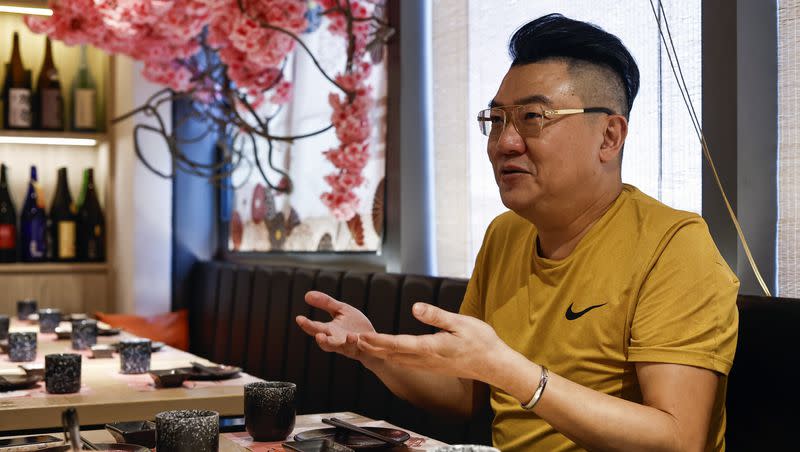China bans seafood as Japan’s nuclear waste water is released into the ocean. Should you eat seafood?

As Japan’s plan to release 1.3 million metric tons of treated radioactive water into the sea over the course of 30 years begins on Thursday, China has banned all Japanese imported “aquatic products,” including seafoods, according to multiple online news sources.
The Chinese customs authorities said the ban is an effort to “comprehensively guard against the risk of radioactive contamination to food safety caused by nuclear-contaminated water discharges,” NBC News reported.
The Deseret News has previously reported on the release and said the International Atomic Energy Agency deemed Japan’s plan to be within safety regulations. The agency said it would have a “negligible” effect on the environment and people in the region.
Related
Is imported Japanese seafood safe to eat?
The World Health Organization said consuming contaminated food “will increase the amount of radioactivity in the body and could increase the health risks associated with exposure to radiation,” but the level of risk depends on which radionuclides were ingested and the amount of radioactivity incorporated.
The Tokyo Electric Power Company said if any abnormalities are found in the equipment used for the release or in the water after the release, “the operation would be suspended immediately and an investigation conducted”, per CNN.
A boat will be sent on Thursday to gather samples of the ocean water and it will be monitored to make sure it stays aligned with international safety standards, CNN added.
South Korea President Yoon Suk Yeol’s administration “expanded radiation testing on seafood at major fish markets,” and last month “some governing party lawmakers even drank seawater from fish tanks at a seafood market in Seoul to emphasize food safety,” according to The Associated Press.
What officials say
“The U.S. has backed Japan, and Taiwan has agreed that the amount of tritium being released should have ‘minimal’ impact,” said CNN.
But the Chinese Foreign Ministry said in a statement that the release is “an extremely selfish and irresponsible act that disregards the international public interest,” per NBC News.
Related
What states have the worst air pollution? How bad is the air in Utah?
More than 5,000 new species discovered: What is the deep sea?
The Associated Press said Hong Kong and Macau have banned seafood imported from Fukushima, along with nine other Japanese prefectures, adding that “North Korea’s Foreign Ministry said Japan would be wholly responsible for its ‘catastrophic consequences.’”
Chong Ja Ian of the National University of Singapore, told Reuters the ban “seems part of the features of China-Japan rivalry, which is of course entangled with China-U.S. competition, given Tokyo’s close alliance relationship with Washington.”
Radioactive risk
The WHO said that in the event of a radioactive emergency, actions can be taken to try to be as safe as possible, including:
Covering all foods with a lid.
Bringing livestock inside sheds or barns.
Harvesting ripe crops before contamination may occur.
Avoiding consumption of specific foods possibly affected by the radioactivity.
“Food that was packaged and sealed before the incident, such as tinned or plastic-wrapped, is safe for consumption,” said WHO.

